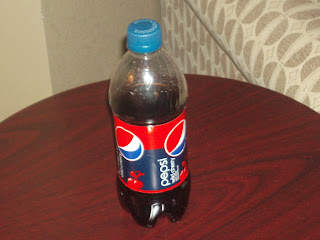 |
| The Mercedes Smart Car. Isn't it cute? I had to enter the drawing. |
After speaking to one of the people at the exhibit, they recommended I talk to Tamra Stansfield, the German Research Consultant who also works in International Research. She was apparently very popular because it took me stopping by a couple times and waiting for a bit before I could talk to her.
While she wasn't familiar with the area, she did manage to come up with a few books at the Family History Library that might be helpful for me. Since they weren't available online, she suggested I post a lookup request on the FamilySearch Forums. For some reason, the forums wouldn't let me in so she gave me her card and said for me to email her and she would look it up herself once she got back. Now that's service.
Another helpful exhibit that I have to give props to is the Ask the Pros booth. I spoke to Billy Edgington there. I asked her about my family that disappeared for 20 years and she gave me some things to try. I also asked her about my husband's family and she recommended someone else at the Family History Library for me to talk to.
I also got to meet Lisa Louise Cooke of the Genealogy Gems Podcast. I checked out the other exhibitors including Elise Friedman of FamilyTreeDNA, the Georgia Genealogical Society, the Afro-American Historical and Genealogical Society (Metro Atlanta Chapter) and Genealogy Book Printing.
I learned about two new (to me anyway) sites that could be helpful in genealogy. The first was JustAJoy, a service that matches family heirloom held by antique dealers or collectors with family members. They have items for over 40,000 families. It's free to search for items related to your surname, but you have to have a subscription to the site ($20 for a year at the time of this post) to get the contact information for the person or business that has the item. I do want to note that while there are some items offered for free, some require purchase.
The other new to me site was AGES-Online. It appears to be an online-based family tree builder. Since it is online-based, it can go wherever you have an internet connection. So rather than bring your laptop to the library, you can sit down at one of the computers there, sign in to the site and attach facts and sources to your tree on the spot. As of the time of this post, it's free to try for 30 days, after which a subscription is required to continue using the service. They do have varying subscription levels so you can find the one that best fits your needs and budget.
Last but not least was the books. I'm a book lover. My genea-cave currently serves as my personal library as well and I have five bookcases lined up along one wall. I really need a couple more. Every shelf is full of books and some shelves are even double stacked. Needless to say, I had to check out the book exhibits, which included Family Roots Publishing andWolf's Head Books.
I ended up buying a 38 generation ahnentafel wall chart and three books. They were out of the charts so I'll have to wait for it to be shipped. Like the name implies, it covers 38 generations of ancestors from a single couple. It has room for details on the first 9 generations; the remainder of the generations only have space for the names. Once it arrives and I get it filled out, I'll frame it and hang it in my genea-cave surrounded by family pictures.
The three books I chose were Georgia Genealogical Research, Indiana Genealogical Research and Virginia Genealogical Research. Each book contains an overview of the state, available record types and where they can be found and county listings, which includes information on the formation of the county, available records and libraries in the area. I probably would have bought more of these books, but couldn't find any more on the state I'm interested in.
 |
| Georgia Genealogical Research, Indiana Genealogical Research and Virginia Genealogical Research, all by George K. Schweitzer |
I did check their website once I got home and saw that they do have some books available for other states. Since I like the books, I think I'll start buying all of the ones available, even if I don't need them for my personal research. They will still be helpful for the genealogy reference library I'm building for when I start working as a professional genealogist.



